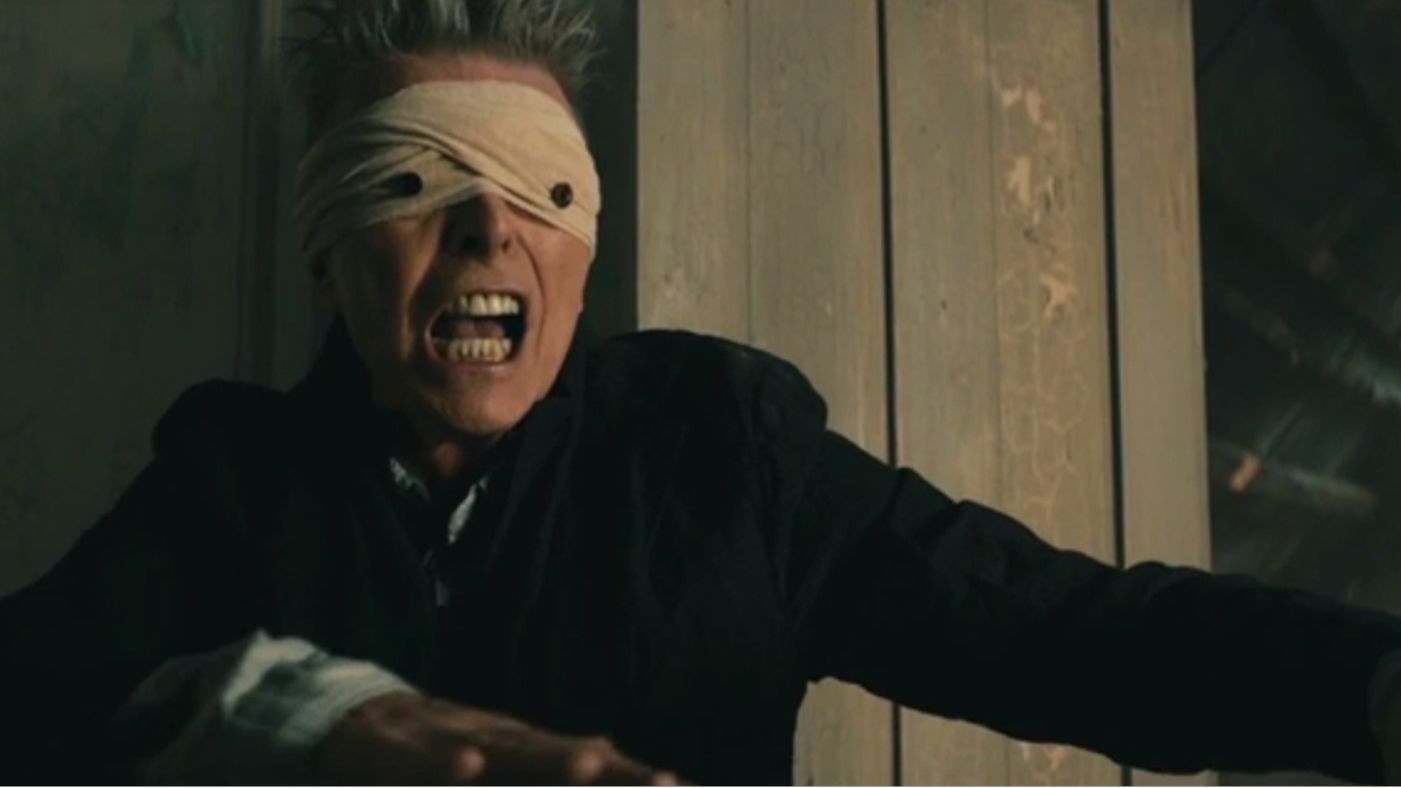

This is not a reinvention. This is not an attempt at recreation. And this is most certainly not a desperate cry for relevancy. This is Blackstar, the latest resurrection from our fearless space age troubadour and faithful freak, David Bowie. There is simple poetry for releasing his 25th studio album on his 69th birthday. Blackstar feels like a gift and paradoxically a curse as he explores tragedy, nihilism, and dystopia — but with a hopeful tonality that makes us believe what I’ve always thought to be true: Bowie knows something we don’t. What feels like a gentle retaliation against the pressures of legacy and the acceptance of finality, Bowie filters his message through a voice that is less fictionalized character or crafted moniker but through David Bowie at 69: a man who has lived it ten times or more.
“It’s like Blackstar is his attempt at invisibility,” Michael said. We sat in the still of the closing track “I Can’t Give Everything Away.” I explain to him my elementary attempt at a scientific definition of a black star and how the way in which one is forged prevents the particles from occupying the same space at the same time. We talk about Bowie’s body of work and I remind Michael of that time three years ago when I had decided I would crash my car into a cement divider on the freeway. I was crying, it was raining, and Bowie’s “Modern Love” came over the radio as I closed my eyes and stopped tracing the lines of the road in my mind. “But I never wave bye-bye/But I try/I try.” Bowie forced my eyes open as the road curved to the right and my hands regained their grip. I didn’t die that day three years ago. Bowie made sure of it.
It is after two thorough listens of Blackstar that I go out for a cigarette. I was already procrastinating and flirting with my deadline, but a cigarette in the quiet confines of Michael’s garage seemed necessary. Michael follows behind even though he doesn’t smoke. I squat on the ground for warmth and open Facebook instinctively. I scroll through three statuses all claiming the same horrifying news. I hand Michael my phone. “Tell me it’s not real.” He takes it from my hands, scrolls, scrolls, taps and shakes his head with an open mouth. “I’m sorry.” He said. “David Bowie is dead.”
We stand several feet apart, suspended by loss and paralyzed with “What now?”
“Let’s get some air.”
I fumbled with the frozen door handle and propel myself forward, as if the house were on fire and I was fighting for smokeless air. I looked to the sky and desperately wanted to see a star or a sign of life. But the winter clouds were thick and the air was tight against my throat. “I hope he knew. He had to know that we loved him.” Michael and I shivered against each other as I covered his shoulder in tears and snot. “He knew.” Michael said. Similarly, I knew the universe continued to swell and explode from behind the Michigan clouds and out of human sight in the same way that Bowie will never truly be gone. Out of reach, maybe, but never gone.
A final act, Blackstar is not. Rather a fitting ellipsis on his countless cosmic journeys through the perils of reality and once again Bowie has invited us to take his hand and follow behind, trudging gracefully against gravity and the notion that we are more than just messy, breathing constellations of matter. This journey is different, though. In this story he lets go. He leads us to the glittering precipice and simply lets go. It’s up to us now, both alone and together, to find our way back to Earth (or wherever it is we call home).
During the track “Girl Loves Me” Bowie cries, “Who the fuck’s gonna mess with me?” I can’t help but imagine him during the moments before his earthly departure with that very question on his lips and I can’t help but silently and lovingly answer “No one.”
Watch David Bowie say goodbye in the video for “Lazarus” below.

